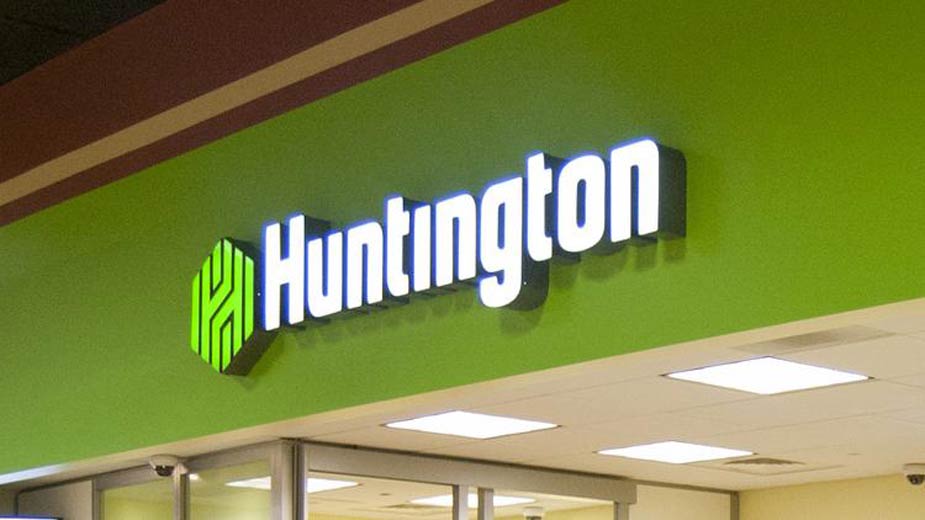CEO of Cortland Bancorp Ponders Future of Banking
VIENNA TOWNSHIP, Ohio – Despite a good year in 2014 and his company turning in a solid performance this year, the president and CEO of Cortland Bancorp, James Gasior, is looking into the future and sees challenges that must be faced.
Cortland Bancorp is the holding company of Cortland Banks, a community bank with 12 full-service offices in Ashtabula, Trumbull, Mahoning and Portage counties and a 13th under construction at U.S. Route 224 and Tippecanoe Road in Canfield.
Gasior was candid with company shareholders Wednesday attending Cortland’s annual meeting at Squaw Creek Country Club, as he laid out how this region and the U.S. banking industry have changed and what lies ahead.
This region continues to lose population, he noted, and new delivery systems – such as ATMs, online banking and smartphones – have reduced traffic at brick-and-mortar offices. He wouldn’t rule out closing branch offices, noting that Cortland has closed two because of changing demographics and insufficient use.
Since deregulation in the early 1980s, he said, the number of banks in the United States has contracted to 8,000 today from more than 14,000, primarily because larger banks have acquired mid-sized and small banks. With the impact of increased regulation from Dodd-Frank, many community banks have, in effect, put themselves up for sale because the expense of compliance is too great.
Gasior thinks the number of banks in this country could fall below 5,000 in the next five years.
And the challenge of attracting and paying the talent needed to operate a community bank is such that all community banks’ senior management finds it tough to compete against regional banks. “Attracting top talent is becoming more and more competitive,” the Cortland CEO said.
As the company looks for successors to aging bank executives and boards of directors, and looks to maintain shareholder value, it is also keeping an eye open to an acquirer as a solution. While Gasior, his senior management and board of directors intend to remain independent, under the right conditions, “We are open to acquisition,” he said.
Cortland’s assets exceed $500 million, Gasior noted, but a community bank with $1 billion or more in assets would find it less challenging to remain independent and compete.
The strength of Cortland Banks’ balance sheet and credit quality position it well for growth, both internally and through merger and acquisition, and to draw a new generation of investors, Gasior said, as well as an increase institutional investors.
The bank has seen its deposits grow to 80% of its liabilities from 50%.
Despite a low-interest rate environment, Cortland has maintained a healthy net interest margin, 3.50% in 2010, 3.72% in 2011, 3.58% in 2012, 3.41% in 2013 and 3.67% last year.
In 2014, Cortland saw its net profits grow to $3.9 million, a gain of 117% over 2013, and the loan portfolio reached $360.2 million, $13.4 million higher than in 2013.
Its credit quality is among the best in the industry. “We are very proud of our credit quality,” Gasior said. “Our [loan] charge-offs are less than 0.025% [in its commercial loan portfolio]. We have one borrowing relationship that accounts as the sole source.”
Nonperforming assets represented only 1.77% of total assets at Dec. 31.
Cortland Bancorp increased it dividend to six cents a share in February after raising to five cents a share in April 2014. That “equates to a yield of more than 1.50% at current market levels,” Gasior wrote shareholders April 3.
Of the 4.53 million shares outstanding, 3.53 million were voted, the chairman of the board of directors, Timothy K. Woofter, said.
The three directors up for re-election, Woofter, attorney James E. Hoffman III and Joseph E. Koch all received more than 75% of the shares voted.
Koch is president of Joe Koch Construction Inc., a home-building company. Woofter is president and CEO of Stanwade Metal Products. Hoffman is president of Hoffman & Walker Co. L.P.A.
The advisory vote on executive compensation (“say-on-pay”) to its named executives – Gasior, Timothy Carney and David Lucido – passed with 2.51 million shares voting in favor. Carney is executive vice president and chief operating officer while Lucido is senior vice president and chief financial officer.
The omnibus equity plan was also approved; 70% of the shares voted yes. The plan authorizes the issuance of 340,000 shares, roughly 7.5% of the outstanding total, to be awarded for employee performance.
The director equity plan passed with just under 70% of the shares in favor. It authorizes the issuance of 113,000 shares, roughly 2.5% of outstanding shares, to outside directors and no director can receive more than 5,660 shares per year.
S.R. Snodgrass P.C. of Wexford, Pa., was renewed as independent outside auditor for 2015, only 1% of the shares voted no.
While 1,600 individuals or entities own shares of Cortland, only 400 voted their shares, Woofter said.
During his remarks, Gasior noted the rising number of shareholders who have retired and moved out of the area.
Those who own smaller stakes in the company are not as likely to vote, Woofter said, something Gasior said he hopes to reverse with greater shareholder involvement.
Pictured: James Gasior addresses shareholders Wednesday at Squaw Creek Country Club.
Copyright 2024 The Business Journal, Youngstown, Ohio.


